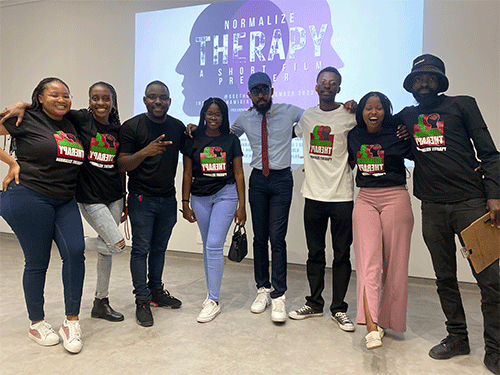Namibia has been ranked among the top five countries in Africa chosen as a location for blockbuster movies.
Last year alone, Namibia serviced 89 foreign film productions worth N$74 million, despite the pandemic. The Namib desert is terrifying, beautiful, desolate and romantic all at once.
The sprawling desert with its almighty saffron-hued dunes and sweltering skies has provided the magnificent backdrop for a diverse range of films over the years. Speaking in the National Assembly during the 2022/23 national budget last week, information and communication technology minister Peya Mushelenga said the ministry received an allocation of N$523 million to carry out the core mandate of coordinating, managing and disseminating government information, and promoting the use and development of ICT infrastructure, policies and strategies, amongst others.
The public broadcaster, Namibian Broadcasting Corporation (NBC), got an allocation of N$343 million towards its operational budget and N$27 million
towards its development budget, whereas the Namibia Press Agency (Nampa) received N$15 million in line with ensuring that
people have access to information.
An amount of N$10 million is allocated to New Era Publications Corporation (NEPC) to continue disseminating pertinent information through its daily newspaper, New Era, reporting on community-related issues, particularly of national interest, and government-related matters which concern the respective communities; to distribute the newspaper countrywide; and to practice sound business growth and development.
Under the audio-visual media and regional offices’ programme, an amount of N$4 million has been allocated to the Namibia Film Commission to promote Namibia as a preferred film destination as well as to promote the local film industry.
Mushelenga said riding on that popularity, the commission will drive a film tourism strategy, which is a growing phenomenon worldwide, stimulated by the increase in international travel.
“How many of us have wanted to visit a destination or attraction as a result of it being featured on television, online or on the cinema screen? Therefore, the commission will strive hard to bring fans to our shores through targeted information-sharing and bespoke service delivery to boost our tourism sector,” he noted.
Furthermore, the commission will streamline its online services to allow filmmakers a speedy and professional service, which would reduce turnaround times from the current 30 days to just 14 days.
While support for content creation is necessary, he believes partnerships will be a key focus to raise additional funds for projects and reduce dependency on the commission’s scarce resources.
“Co-production opportunities with countries that have strong cinema cultures such as Nigeria and South Africa will be explored fully to unlock distribution avenues for local content,” the politician added.
Equally, he said the commencement of the African Continental Free Trade Area (AfCFTA) in 2021 has boosted the exchange of film investment and collaboration among member states, to be further propelled by the launch of the Africa Film Commission Network in May 2022.
Mushelenga observed that as the country prepares itself for the enactment of Access to Information legislation, the ministry will remain steadfast in ensuring that its implementation will be prioritised in order to ensure that all citizens have access to information that will help them make meaningful decisions about their lives and livelihoods.
Given that access to information is one of the cornerstones of human rights and freedom, he urged parliament to speed up discussions on this important piece of legislation when it returns so that it is enacted as soon as possible.
“While we prepare for the enactment of the Access to Information legislation and its implementation, the MICT will conduct an Information Access Impact Survey during this financial year to determine the percentage of the population that has access to information, and establish the impact it makes on the citizenry, as well as identify gaps that hinder access to information,” he noted.
The survey will indicate how best the government can ensure access to information, especially in an ever-changing digital era. It will further inform the ministry on how to adjust its information dissemination strategies to meet the needs of the Namibian people.



